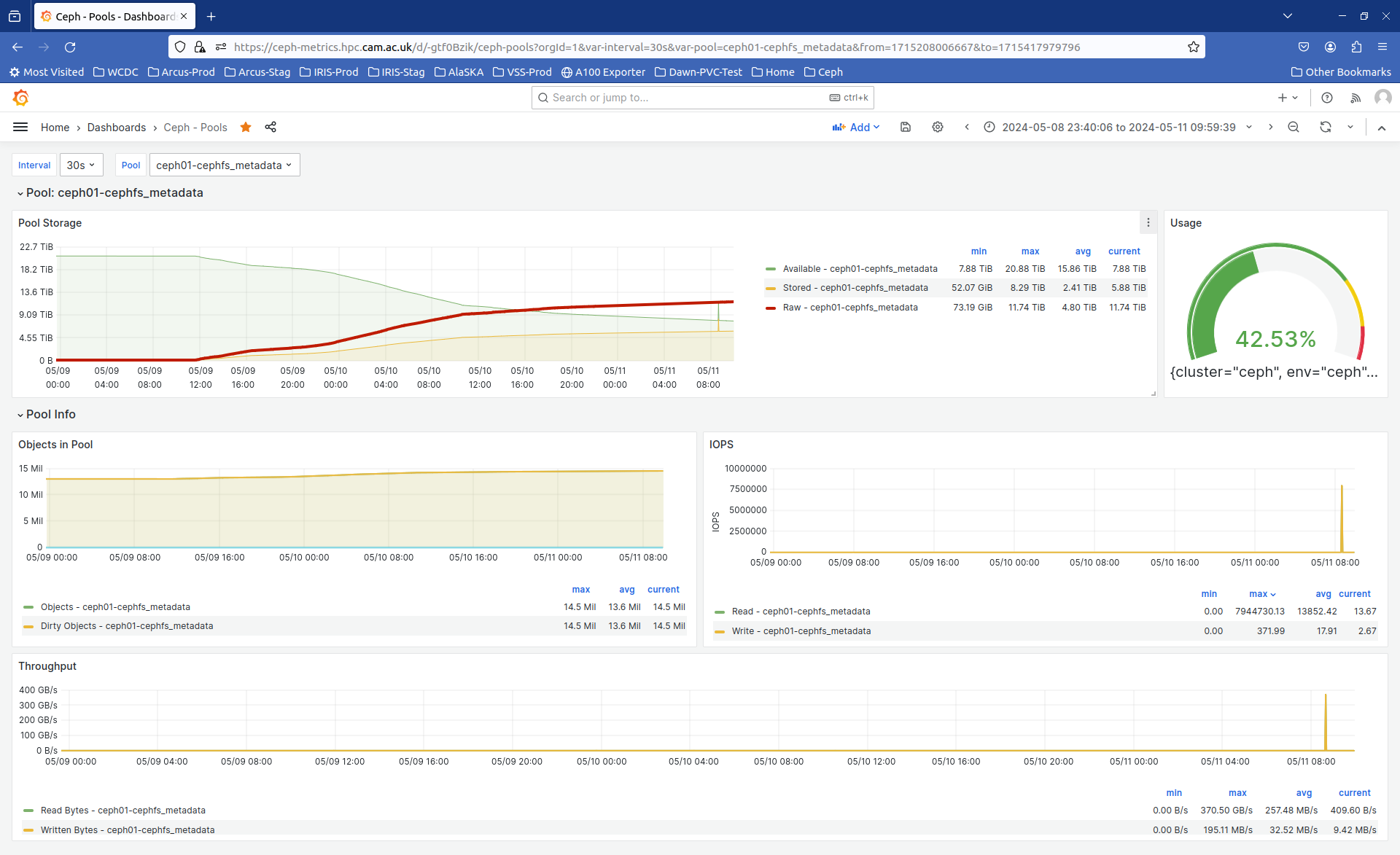|
Hello Ceph users,
We've recently seen a very massive uptick in the stored capacity of our CephFS metadata pool, 150X the raw stored capacity used in a very short timeframe of only 48 hours or so. The number of stored objects rose by ~1.5 million or so in that timeframe (attached
PNG shows the increase)
What I'd really like to be able to determine, but haven't yet figured out how, is to map these newly stored objects (over this limited time window) to inodes/dnodes in the filesystem and from there to individual namespaces being used in the filesystem.
This should then allow me to track back the increased usage to specific projects using the filesystem for research data storage and give them a mild warning about possibly exhausting the available metadata pool capacity.
Would anyone know if there's any capability in CephFs to do something like this, specifically in Nautilus (being run here as Red Hat Ceph Storage 4)?
We've scheduled upgrades to later RHCS releases, but I'd like the cluster and CephFS state to be in a better place first if possible.
Thanks,
Paul Browne

*******************
Paul Browne
Research Computing Platforms
University Information Services
Roger Needham Building
JJ Thompson Avenue
University of Cambridge
Cambridge
United Kingdom
E-Mail:
pfb29@xxxxxxxxx
Tel: 0044-1223-746548
*******************
|
_______________________________________________ ceph-users mailing list -- ceph-users@xxxxxxx To unsubscribe send an email to ceph-users-leave@xxxxxxx
